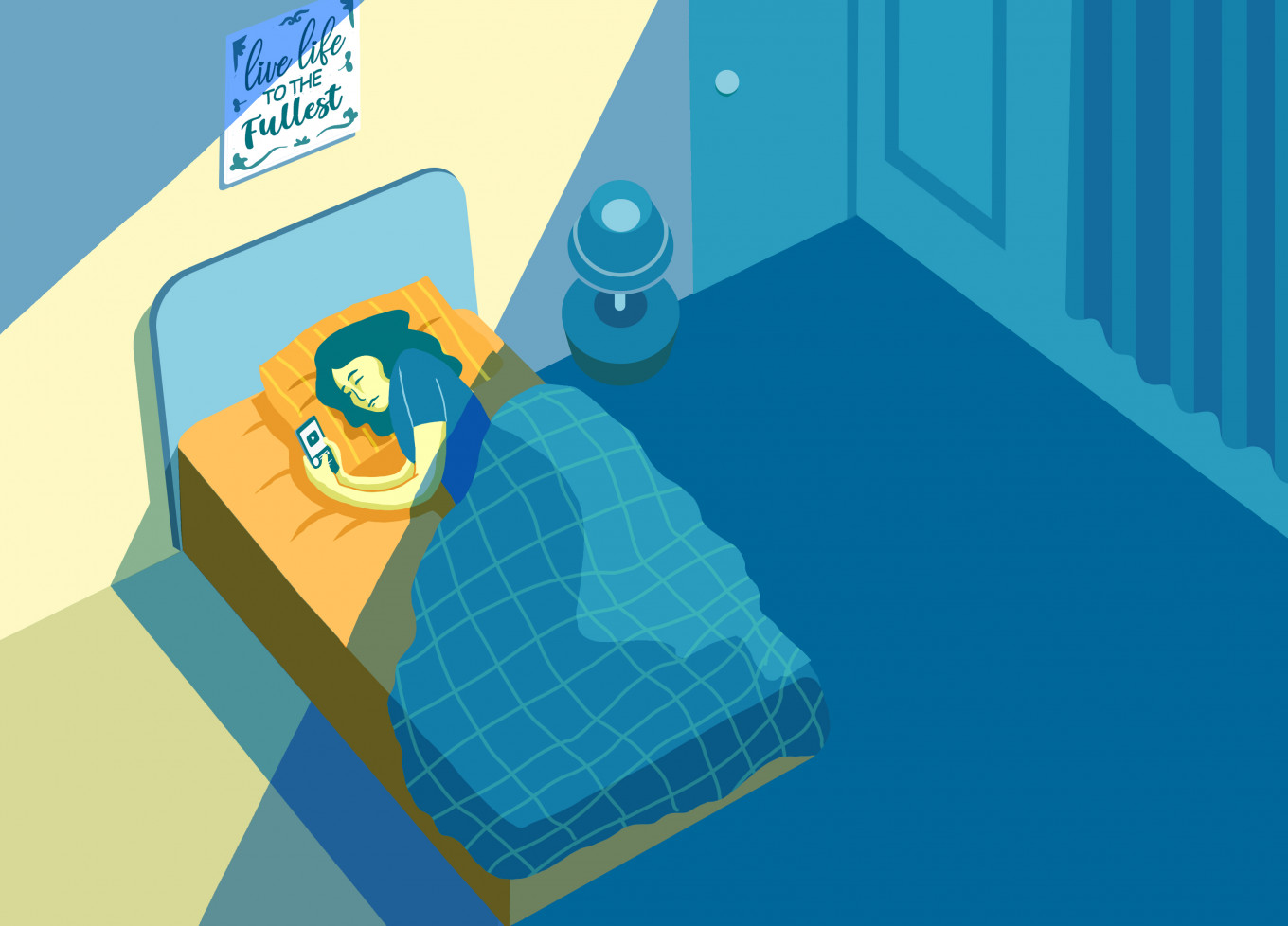I threw My Year of Rest and Relaxation by Ottessa Moshfegh across the room.
Just a few chapters in and I felt attacked.
The book, highly recommended by friends, was uncomfortably familiar. It was a Wednesday, I wasn’t working much that week and I was reading in bed. The protagonist—who rarely leaves her apartment except for coffee and sleeping pills—felt too close for comfort.
“I am not like that,” I said out loud.
And I know I’m right. I might not have a steady job right now, but I keep my finances afloat, run 5Ks, pay rent, stay in touch with family in Jogja and maintain friendships. So yes, I think I’ve earned the right to spend my weekends lying in bed, doing whatever I want.
But still, that book felt like a form of rest-shaming. And it got me thinking: Why does bed rest provoke such judgment?

Thank you!
For signing up to our newsletter.
Please check your email for your newsletter subscription.
Bed rotting
That’s when I remembered the internet’s favorite buzzword: bed rotting.
The term has sparked both disgust and admiration. Some call it lazy escapism or a sign of depression; others defend it as overdue self-care in a world that demands constant hustle.
Google’s artificial intelligence overview sums it up as “spending extended periods of time in bed... engaging in non-sleep activities like watching TV, using social media or simply relaxing”.
This bed is my cocoon. It’s where I know peace. - Ayu
That’s basically what I do on weekends. I never labeled it before, but it’s not a crisis or rebellion—it’s just part of my rhythm.
Still, the more I thought about it, the more I wondered: Maybe this need to unplug is rooted in something deeper, like the constant strain of living in a productivity-obsessed society.
Weekend resets
“You came at a good time,” my college friend Citra said, ushering me into her South Jakarta apartment.
Citra, a successful “girlboss” in her 30s, leads a team of more than 10 people. She’s always on call, in meetings, reporting up and down the ladder. And despite loving her job, she’s exhausted.
“On weekends, I physically cannot emerge from bed,” she said, handing me a cup of tea.
Because of a Friday holiday, she’d already done her usual two-day recovery sleep before I arrived. For her, sleeping 15-20 hours daily is not indulgence, it’s strategic. It’s what powers her career.
“I left my hometown to attend college in Jogja. That first night alone in a kost felt like freedom,” she said.
“Turns out I can thrive—just not when I’m constantly surrounded by people.”
In her childhood home, shared with extended family, privacy didn’t exist. Girls were expected to do chores, and rest was frowned upon. Moving out allowed her to reclaim sleep, and in doing so, her potential.
“I think I’m destined to only have minimal contact with people. No one tells me not to sleep when I need it.”
Her second weekend day is for binge-watching, scrolling and ordering food—all from bed. When evening comes, she flips into chore mode, preparing for the week ahead. It’s a routine that works.
She showed me TikToks by doctors that made her believe she’s neurodivergent, but she hasn’t sought a diagnosis.
“I already know the solution: a weekend of rest and relaxation.”
A life around the bed
Another friend, Ayu, lives in a studio apartment in North Cipete. Her bed takes up most of the space, opposite a 55 inch TV. When I told the group chat I was writing about bed rotting, she was the first to volunteer.
In her late 20s, she’s built a freelance life she loves: remote work paid in US dollars, flexible hours and a bed that doubles as her office.
“I just need to be consistent and vigilant,” she said, showing me her work history.
She does copywriting, customer support, social media and translation. Recently, she landed a ghostwriting gig that paid her year’s rent.
She works long hours, eating and drinking in bed, surrounded by pillows. Her weekends? Movies, visits from her boyfriend and friends—also in bed.
“If I push through weekends, I burn out,” she said.
“I need to be organized to afford this lifestyle.”
She has tried the corporate path—commuting to a skyscraper in Kuningan—but hated it. COVID-19 gave her a taste of work-from-bed life, and she never looked back.
She’s aware of the risks. After hearing I was writing this, she Googled “bed rotting” and bought a walking pad and running shoes.
“I might not feel unhealthy now, but I don’t want to grow weaker.”
Though she prefers staying indoors, she’s carving out space to move—just not outside.
“This bed is my cocoon. It’s where I know peace.”
In her case, bed rotting isn’t about recovery; it’s a conscious lifestyle choice that could be sustainable if one is aware of the health risks.
A solution, not a problem
Talking with Citra and Ayu reframed the narrative. Rather than escapism, their bed-centered lifestyles feel like solutions. Both are hardworking women navigating a society that demands too much. One needs more sleep. The other, less commuting. They’re not lazy—they’re strategic.
Still, not all experts agree.
Lia Sutisna Latif, a psychologist at the International Wellbeing Center (IWC), urges caution. She warns that beds should be reserved for sleep, not scrolling or snacking.
“The bed should be where we turn off,” she said.
“Spending too much time in bed doing non-sleep activities can lead to insomnia.”
Lia also points out the mental health risks of using bed rotting as escapism. Inactivity can fuel anxiety and depression, especially if digital content triggers negative emotions or work emails creep in.
“The longer someone stares at a screen in a relaxing place, the less productive they become,” she said.
“True self-care involves genuine rest—not distractions.”
Her advice? Set boundaries, disconnect and keep the bed sacred for sleep.
A complex symptom
I think about all the young women who grow up shamed for midday naps. Will they become the next Citras, finding peace only after living alone?
I think about Jakarta’s exhausted commuters, nodding off on strangers' shoulders in buses—how many hours they could reclaim if the city offered humane transportation.
To me, bed rotting isn’t just a TikTok trend or a quirky habit. It’s a symptom of a bigger issue: a society that equates worth with productivity, leaving no room for stillness.
Maybe this isn’t about avoiding life. Maybe it’s about preserving it.
Gisela Swaragita is a Jakarta-based writer, editor and translator with an addiction to sensory adventures, from music and film to travel and food. When overly stimulated, she loves cooking and singing in the shower.






















